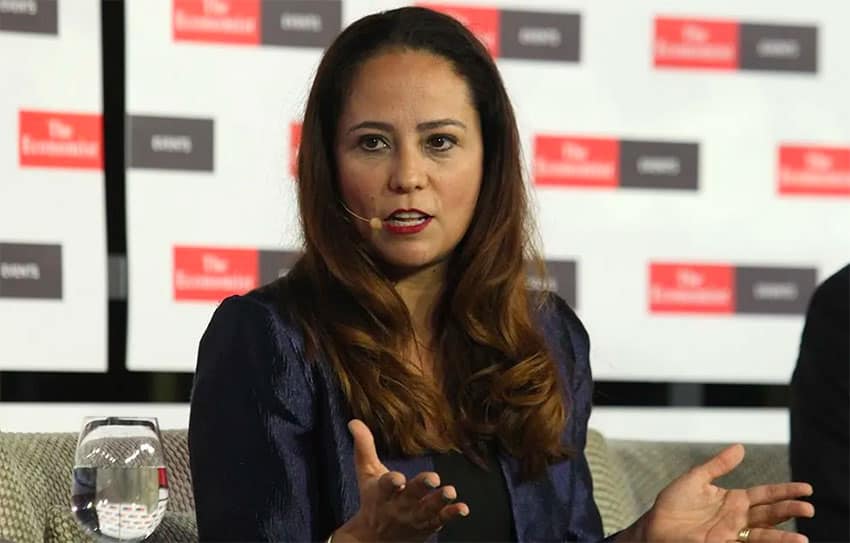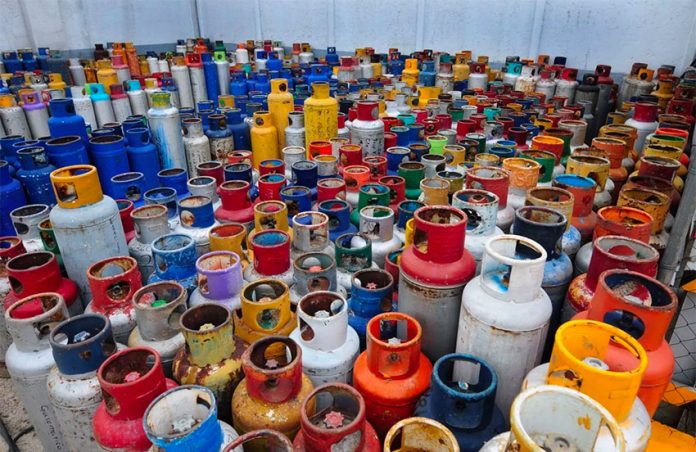The federal government’s plan to create a new state-owned company to distribute LP gas directly to consumers at low prices is concerning for several reasons, according to a leading economic analyst.
President López Obrador announced Wednesday that state oil company Pemex will establish the new utility within three months. Gas Bienestar (Well-Being Gas), as the new company will be called, is needed to create additional competition in the LP gas market because it is dominated by five large companies and gas prices have been rising “unjustifiably” above inflation, he said.
In a series of Twitter posts, the director of economic and financial analysis at Banco Base questioned the wisdom of the plan.
Gabriela Siller noted that Mexico is not self-sufficient in LP gas and therefore Pemex/Gas Bienestar will have to import a certain quantity of it at a price determined by the international market. (Pemex is already an LP gas importer and also produces gas.)
“There will also be transport, storage and commercialization costs, so it is not clear how they will offer gas at a lower price,” she wrote.
Siller cited data from the Federal Economic Competition Commission (Cofece) that showed that domestic gas production was meeting less than 30% of demand at the end of 2017.
“This means that increases in international prices are absorbed by importers and distributors in the country, as well as sellers and finally consumers,” she wrote.
Siller noted that international LP gas prices have risen 45.7% annually as of late June and domestic prices were up 17.8% in the first half of last month compared to the same period a year earlier.
“The discrepancy between the rise in the international price and the local price is because several sellers have absorbed part of the increases,” she wrote.
“The creation of ‘Gas Bienestar’ also implies investment in tanks to sell [gas], employees, etc., so there are initial costs like in any company. The question is: who will absorb these costs, Pemex or [the Ministry of Finance]? (Which for practical purposes are the same),” Siller wrote.
The extra burden on government resources could have implications for Mexico’s sovereign credit rating, she continued.

“Creating the [state-owned] company doesn’t guarantee that gas will be offered at a lower price. The only way for that to occur would be to incur the cost of creating the company, operating it and then selling gas at a subsidized price,” Siller wrote.
López Obrador said Wednesday that Gas Bienestar’s prices would not be subsidized by the government but rather the company will have very low profit margins that allow it to keep prices low.
But Siller maintains that creating and operating the company will be a costly exercise for the Ministry of Finance or Pemex, which already has debt in excess of US $100 billion.
“Creating Gas Bienestar will be doubly onerous for public finances because 1) gas will be sold below the market price and 2) [the government] will incur the operation costs,” she wrote.
Siller said it would make more sense for the government to subsidize consumers’ purchases from existing private companies, perhaps via a voucher scheme, rather than create a new state-owned one, although she acknowledged that would come at a cost as well.
“But we [would] save the cost of creating a new company and operating it,” she wrote.
“In summary, there are five concerning things about the creation of Gas Bienestar:
- Additional costs for the public sector.
- Investment costs for commercialization…
- Risks of credit rating cuts.
- Risk of a fall in fixed investment in the sector …
- Risk of [the government] wanting to limit import permits, which could generate shortages.”
Meanwhile, Cofece responded to López Obrador’s criticism that it has done nothing to stop the increase of LP gas prices.
The competition watchdog said in a statement that it shares the desire of citizens and the president for fuels to be offered at the best possible prices in Mexico.
“In fact the commission has been emphatic and vocal [on the issue], … undertaking actions to investigate and … sanction anti-competitive behavior and promoting greater competition in the gasoline, diesel, LP gas, aviation fuel and electricity markets,” Cofece said.
With regard to LP gas in particular, the watchdog noted that it has investigated to determine whether there is “effective competition” in the market and if there is collusion between LP gas distributors.
“… In the case of collusion being proven, economic sanctions of up to 10% of the income of the companies involved can be imposed,” Cofece said.
A final determination of the investigations is awaiting response from the gas companies themselves.
The commission also noted that it published a study in 2018 that warned that the LP gas market was dominated by a small group of companies and made recommendations to reduce the impacts of the market concentration.
Among the recommendations were to allow the sale of LP gas cylinders at gas stations and supermarkets, to sell gas to vulnerable sectors of the population at state-run Diconsa stores and to eliminate obstacles to the installation of new distribution plants. None of the recommendations was implemented by the federal government, Cofece said.
Mexico News Daily
